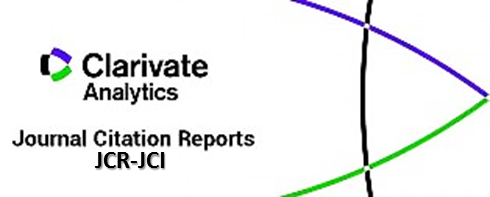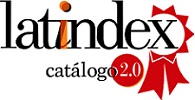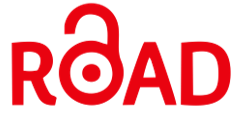Sobre la revista
- Enfoque y alcance
- Frecuencia de publicación
- Proceso de evaluación por pares
- Indexación
- Financiamiento
Enfoque y alcance
La Revista Electrónica de Investigación Educativa (REDIE) (ISSN 1607-4041) es una publicación de periodicidad continua que difunde investigaciones de académicos y profesionales interesados en las prácticas educativas desde los distintos campos del saber y desde perspectivas teóricas y metodológicas diversas.
Áreas de enfoque:
- Innovación pedagógica
- Experiencias educativas, práctica educativa y mejora de la calidad
- Políticas educativas
- Inclusión educativa
- Tecnologías educativas
- Formación y desarrollo profesional docente
- Evaluación educativa
- Gestión educativa
Por su naturaleza, es una publicación de alcance internacional que difunde contribuciones en español e inglés rigurosamente evaluadas por pares bajo la modalidad doble ciego.
El objetivo principal de la REDIE es comunicar información relevante y actual en el campo de la educación.
Colaboraciones
Todos los trabajos que se publiquen en la REDIE deberán estar relacionados con el área de la Educación, ser originales, rigurosos y bien fundamentados; no haber sido publicados anteriormente ni ser sometidos simultáneamente a dictamen en otra publicación.
a) Artículos de Investigación empírica. Trabajos en los que se den a conocer resultados finales (completos) de una investigación socialmente pertinente y académicamente relevante. Trabajos de este tipo parten de una revisión bibliográfica exhaustiva sobre el tema de interés, emplean una metodología formal y sus resultados se analizan rigurosamente utilizando herramientas conceptuales y estadísticas.
- Se considerarán colaboraciones cuyos hallazgos tengan impacto en una audiencia más amplia.
- No se considerarán estudios sobre un solo grupo, asignatura, carrera o institución salvo que los resultados de los mismos representen una contribución excepcional al campo de la educación.
b) Artículos metodológicos. Trabajos que presentan nuevos enfoques en la investigación o en la práctica, o planteen modificaciones a los métodos existentes. Este tipo de trabajos permite evaluar la aplicabilidad de la metodología, además de comparar los métodos propuestos con los utilizados tradicionalmente.
c) Artículos de revisión. Trabajos de metanálisis y evaluación crítica exhaustiva de investigaciones realizadas sobre un área u objeto de estudio de la Educación. El artículo de revisión presenta el estado del conocimiento del objeto de estudio, identifica relaciones, contradicciones e inconsistencias en el tema de interés y propone nuevos estudios.
- Este tipo de colaboraciones se gestionan sólo por invitación expresa del Editor.
IMPORTANTE
No se aceptan artículos de opinión ni ensayos informales; trabajos sin fundamentación teórica; investigaciones incipientes o inconclusas; narraciones, anécdotas o experiencias personales o institucionales; propuestas pedagógicas sin evidencias empíricas; resúmenes de libros; trabajos con serios problemas de redacción ni artículos poco relacionados con los temas centrales de la Educación.
Código de ética
La REDIE se suscribe al código de ética para la actuación y desempeño de los actores involucrados en el proceso de publicación de esta revista (editores, comité editorial, autores y revisores) establecidos por el Committee on Publication Ethics (COPE), disponible en publicationethics.org
Frecuencia de publicación
La REDIE es una publicación continua.
Proceso de evaluación por pares
Las contribuciones deberán acreditar favorablemente el proceso de dictamen académico, el cual operará bajo la modalidad de revisión por pares, doble ciego, donde la identidad tanto de los autores como de los dictaminadores permanecerá en anonimato:
- Los artículos que acrediten el dictamen editorial serán enviados a académicos expertos en la misma área disciplinar y temática que las del texto postulado. Los revisores serán seleccionados de la cartera de árbitros –integrada por especialistas de instituciones nacionales e internacionales–, quienes emitirán comentarios sobre la pertinencia y calidad del texto propuesto y determinarán la factibilidad de la publicación del mismo.
- Los dictaminadores tendrán bajo su responsabilidad revisar y analizar que los textos sean una contribución original al campo de la investigación educativa, que los referentes teóricos sean pertinentes y la metodología adecuada, y valorar la relevancia de los hallazgos descritos.
- Todos los textos serán remitidos a dos expertos –adscritos a una institución distinta a la de los autores–, quienes emitirán sus comentarios. Finalmente, con base en las recomendaciones de los revisores, la decisión del editor será:
ÁRBITRO A ÁRBITRO B RESOLUCIÓN Positivo Positivo Aceptado Positivo Negativo Envío del artículo a árbitro C,
cuya decisión será definitiva
e inapelablePositivo Condicionado
(sujeto a cambios
y reenvío)El artículo corregido regresa
al dictaminador, quien acepta o rechaza la publicación (2a. ronda)Negativo Condicionado
(sujeto a cambios
y reenvío)Rechazado Negativo Negativo Rechazado - La dirección editorial garantizará, en todos los casos, que los dictámenes entregados a los autores contengan argumentos sólidos que respalden la decisión editorial.
- Los resultados del proceso de dictamen académico serán inapelables en todos los casos.
- El tiempo para que el documento sea turnado a dictamen estará en función del número de artículos en la lista de espera. Una vez notificada la recepción del artículo al autor, el tiempo estimado de dictamen es de 3 a 6 meses.
- En caso de recibir observaciones, el autor tendrá un plazo de cuatro semanas para hacer llegar al editor la nueva versión del trabajo.
- Los árbitros, una vez recibido el artículo, tendrán cuatro semanas para realizar la revisión y entregar el resultado.
- Los documentos aceptados iniciarán el proceso de edición (corrección de estilo, formación, maquetación, marcaje de metadatos, etc.) para posteriormente ser publicados, según la decisión de la dirección editorial.
- Una vez concluido el proceso editorial la versión preliminar del texto será turnada a los autores para su última revisión y aprobación. Estos tendrán un plazo de tres días naturales para la entrega del Vo.Bo., si no se entregaran comentarios en dicho plazo se asumirá que los autores han dado su aprobación tácita.
Los criterios de revisión que justifican la decisión de aceptar o rechazar un trabajo son:
- Contribución y relevancia para el conocimiento científico (nacional e internacional)
- Lenguaje claro y coherencia en la redacción
- Rigurosidad metodológica
- Pertinencia y actualidad de los referentes teóricos
- Análisis de datos y argumentación
Indexación
Debido a los criterios de calidad que ha manejado la REDIE a lo largo de su historia, y a su impacto en la comunidad científica en el campo de la educación -principalmente en Latinoamérica-, ha recibido el reconocimiento de organismos nacionales e internacionales a través de la incorporación a diferentes índices y bases de datos:
Sistemas evaluadores de citas
Sistemas evaluadores de la calidad editorial
Bases de datos y directorios
Última actualización: Enero 2026.































